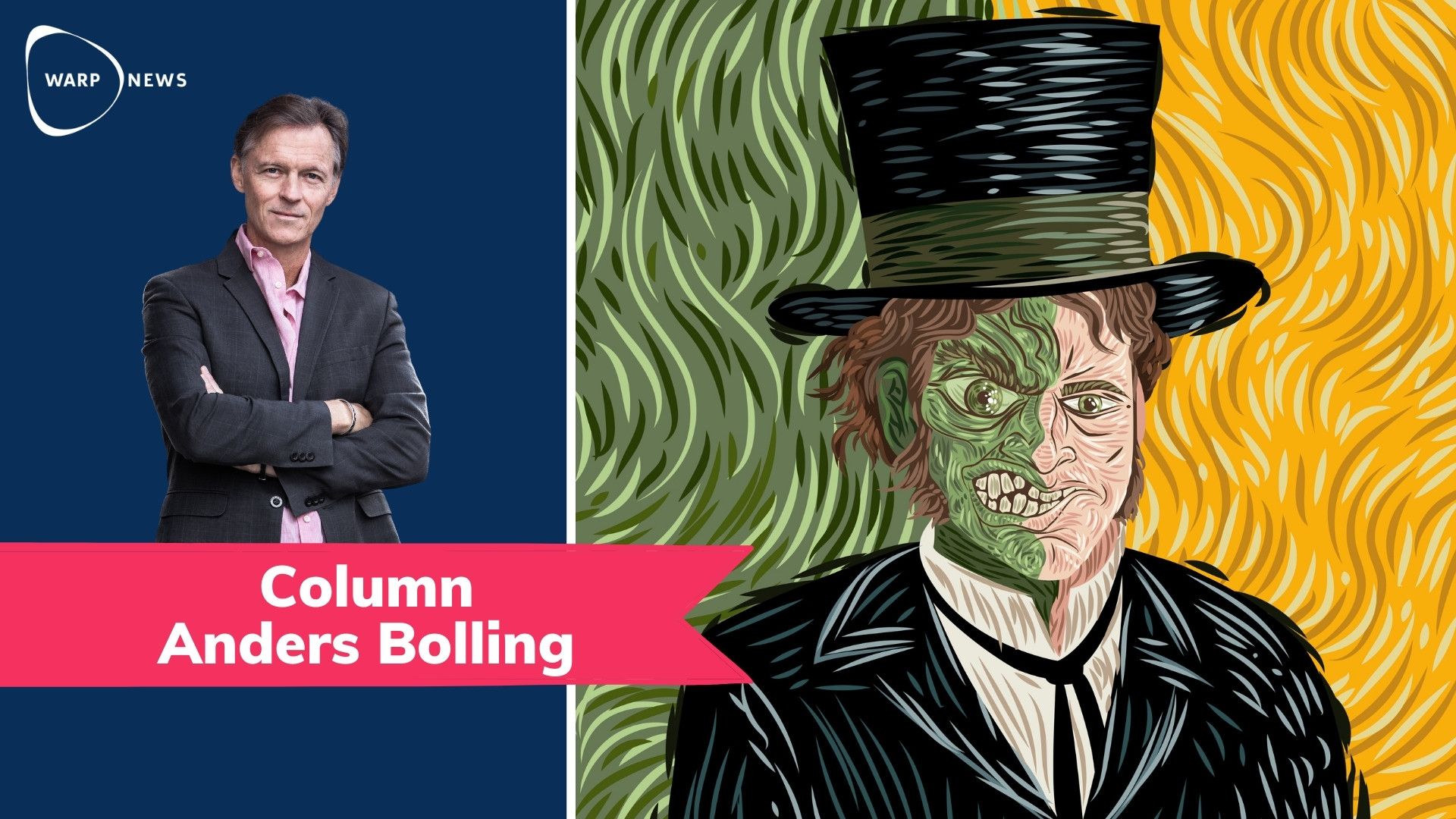
🤥 The false myth about our selfish nature
Would we all become Mr. Hyde as soon as the thin veneer of civilization is scraped away? Anders Bolling has gotten himself food for thought.
Share this story!
I got excited when Steven Pinker's book The Better Angels of Our Nature came out in the fall of 2011. I had self-published Apokalypsens gosiga mörker (The cuddly darkness of the apocalypse) two and a half years earlier, where a main chapter was about the reduction of violence. War and murder were at that time at probably the lowest levels in recorded human history.
I admittedly had a bit of a hard time with Pinker's reductionist worldview, but his conclusions felt right. And he had peppered his book with studies and statistics.
When I read Rutger Bregman's Humankind a couple of years ago, I got food for thought. I began to understand that Pinker had done some "wishful thinking" about the level of violence in ancient hunter-gatherer cultures to fit his overall narrative that it is civilization that tamed the selfish beast in Homo sapiens. Bregman's fascinating conclusion is almost the opposite: our propensity to use violence for our own gain – especially organized violence – skyrocketed when we started building hierarchical power structures.

However, as usual, it is not that simple. Pinker is right in that the existence of an average person has become less bloody and violent during the centuries, perhaps a couple of millennia, that we can survey and have reasonably good sources from. But he goes wrong in his über-rational analysis when he goes very far back in history, to the hunter-gatherer age that prevailed before hierarchical and delimiting structures began to be built up. From this archaic time, the archaeological evidence for how life was lived is no more extensive than a Harvard professor being able to interpret it in his own way and get away with it. Rutger Bregman shows that there are plenty of scientific objections to Pinker's thesis about high murder rates in the societies we usually call prehistoric.
Bregman pits the philosophers Hobbes and Rousseau against each other. In Leviathan, Hobbes championed an organized and controlling state that curbs people's lowest drives ("the war of all against all"). Rousseau believed that the Hobbesian society is unnatural and destructive and that man is fundamentally good, as the Swedish translation of Bregman's book reads. Unsurprisingly, Bregman is team Rousseau, while Pinker is team Hobbes.
The celebration of Hobbes didn't feel entirely comfortable when I read The Better Angels, but I bought it then because the reasoning made sense. I don't anymore.
Why has violence decreased?
How then can violence have decreased in our recent history? I don't think it has happened thanks to the controlling power structures but in spite of them. The drive away from violence, causing us to accept less and less of it, does not emanate from the top of the power hierarchy. It was not ordinary Ethiopians or ordinary Russians who were fired up to start the bloodiest armed conflicts of our time. It was not in the depths of the American people that demands were raised to invade Iraq. No, our anti-violence effort comes from below, from within. With basic material needs satisfied many times over, we have been given an increased spiritual space to rediscover who we can actually be and what is valuable and important.
There are plenty of modern stories, or myths, rather, about how the absence of laws and regulations causes chaos. The stories are often reproduced in course literature. Rutger Bregman goes to the sources and finds that the myths leak like a sieve, all of them. The reality is not that simple, and above all, the people involved are not as selfish as it has been claimed. Some striking examples:
- Heavy and academically ground-breaking studies such as Philip Zimbardo's Stanford Prison Experiment and Stanley Milgram's experiment on obedience were based on manipulation and were partially misinterpreted.
- The standard narrative of Easter Island as a cautionary tale, that the decimated population would have met its cruel fate because of inherent human selfishness that drove the island into a spiral of war and cannibalism, is not true at all.
- The reporting of the Kitty Genovese murder in New York City in 1964, which became a major media story about human selfishness, was biased and partly outright false.
- Several studies have now refuted the half-century-old so-called bystander effect, that people would be disinclined to intervene if many people witness a person in distress. In fact, it is the rule rather than the exception that bystanders intervene when someone needs help, regardless of the number of witnesses.
- "Homo economicus", the idea that people only do things they have something to gain themselves, also falls flat under scrutiny.
The real Lord of the Flies
Rutger Bregman even saw Lord of the Flies. Yes, it is a fictional story, but it has been used in countless contexts to show the atrocities that occur when a group of children are left to fend for themselves. About ten years after William Golding wrote his acclaimed novel, the real-life Lord of the Flies occurred in the South Seas: a group of schoolboys got lost in a storm and were forced to spend a year on a deserted island before rescue arrived. When Bregman heard about it, he gathered all the information he could find and could hardly believe that this true episode had remained largely unknown. In reality, the shipwrecked boys helped each other, divided the work, and found methods to avoid conflict.
In fact, it doesn't take much thought to realize that most of us often want to do good without an obvious carrot or stick. Why else would we spontaneously play with children, organize parties, or help drivers who have driven into a ditch? Why help someone in need at all?
In short: The notion that we would all become Mr. Hyde as soon as the thin veneer of civilization is scraped away is a mental construct, a malevolent concept.
In real life, people help each other and cooperate just fine. It is our nature. There are of course exceptions, but we have a sad tendency to inflate the importance of these.
Can we manage without an overcoat?
However, for those who rule the world, one can suspect that there are strong reasons to defend the theory of the veneer. If supposedly benevolent power structures do not maintain order, chaos breaks out. That story has been incredibly successful. Probably a majority of the population believes it to be true. And those who suspect that it might not don't really dare to take the chance that we can manage without overcoats.
Anders Bolling
By becoming a premium supporter, you help in the creation and sharing of fact-based optimistic news all over the world.


